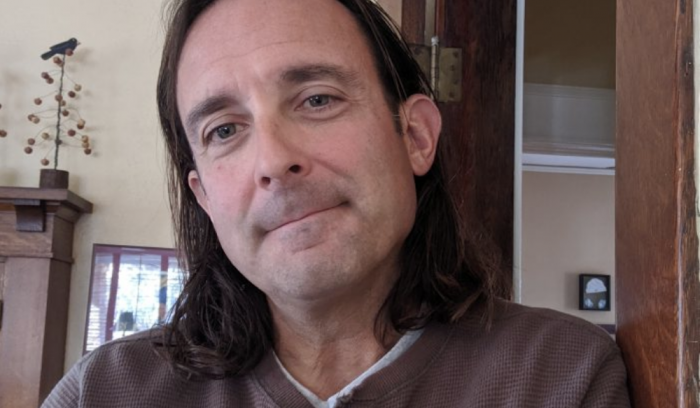I can’t believe you’re reading this.
I’ve been accused of using clickbait titles before, but this article is about accountability, and there’s nothing sexy about that.
Maybe that’s the problem. Maybe that’s why we ignore accountability and the huge blessing it is in our lives. I don’t think most people understand the power of true accountability. I know I didn’t understand until I stumbled into it almost two years ago.
I’m an alcoholic in recovery, but my specific challenge isn’t important, really. My alcoholism might be your eating disorder or your self-esteem issues or your narcissism (yes, there’s hope for narcissists, too). Your “ism” or your trauma isn’t the point. What you do about it—that’s what this is all about.
I run a program for people in early sobriety. I’m supposed to be teaching them survival techniques, but being involved with so many people who are walking the treacherous path I once walked has taught me far more than I ever expected.
What I’ve learned is that my curriculum works really well for some people, but I’ve also learned that it is not a good fit for others. I have come to the conclusion that the specific work you do to cure that which ails you is not as important as doing the work selflessly.
Do you know the work that is most effective? It isn’t this program versus that program. It isn’t AA versus something more modern and contemporary. It is accountability. That’s where salvation seems to live.
I was a full year sober before I took accountability for my disease. I took responsibility right away, but responsibility is only part of accountability. That first year was a hellish combination of white-knuckling the temptations and slowly building my sobriety muscles. I used bibliotherapy, addiction nutrition, and a variety of other tools to survive.
However, my survival of that first year is not the point of this article. What happened next explains where I found my permanent sobriety.
What happened next was me taking accountability for my disease and the calamity it caused. This wasn’t an act of bravery. I wasn’t standing on a mountaintop staring into the distance with my cape blowing behind me in the wind. I was cowering and terrified.
It reminds me of a fight we had to break up in the bar where I worked in college. A bunch of huge, drunk wrestlers started fighting, and all of the bartenders jumped over the bar to calm the skirmish. The first guy I approached was a walking wall of muscle. He could have smooshed me with his pinkie finger. I grabbed him around the waist and held on for dear life. My left ear was smashed into his ribcage, and I squeezed my eyes shut tight, bracing for impact. I only stopped him from throwing the next punch because he was so intrigued by the human leech that had attached itself to his midsection. It was comical. In fact, I think the laughter is what stopped the altercation.
And that’s what taking accountability for my alcoholism felt like for me. I felt like a human leech—eyes closed, head down, and holding on like my life depended on it.
Accountability isn’t the same thing as being responsible. I looked up the definitions to make sure I got it right. Included in defining accountability are these three words: “obligation to report.” Taking internal or semi-private responsibility for what we did or what happened to us isn’t enough if we want to be accountable. Sharing our secrets with a few close friends or family members is not accountability. Connecting with people who share our stories (think Alcoholics Anonymous) is healing in a way, but it isn’t accountability.
There are two parts to accountability for me. It is a willingness to tell our stories, and putting some skin in the game. Accountability isn’t a one-way street. We have to be willing to share our pain, and also absorb some of the pain of others. We have to be willing to listen. We can’t change history, but through accountability, we can impact the future. We can’t dismiss the pain of the stigma from which we suffered, but we can combat the stigma to weaken the power it holds over those who come after us.
My moment of accountability came when I sent over 3,000 emails to every address I’d collected in my life—business and personal, friends and distant acquaintances, my bosses and ex-girlfriends—everyone. I explained that I was an alcoholic, that I’d survived my first year of sobriety, and that abstinence was the plan for the rest of my life. When I clicked send on that message, it was the scariest moment of my life. I would have preferred to have been latched onto an angry, drunken wrestler.
I spoke out, and thousands of people listened. The support I received was overwhelming. I sent that email to lift a burden of anonymity from my shoulders. I wanted to be heard. I wanted to come out of the closet about something I had hidden effectively from most of the people in my life. I owned the pain inflicted on my wife, and I made a commitment to remain sober.
But something else happened. Something unexpected. I inadvertently put some skin in the game. By being so open about my affliction, I invited others to confide in me and seek my support. By following what I felt was an “obligation to report” the suffering resulting from my disease, I unknowingly injected myself into the fight against the stigma.
By talking, I became a listener. By explaining the problem, I became part of the solution.
This isn’t about ego. A friend and reader of my writing remarked last week that my work isn’t glamorous, but it seems necessary. That’s exactly right. There is no glamour in admitting to being an alcoholic, but there is a sense of mission about it. There are over 15 million of us in the United States, and most of us alcoholics will take our secrets to our early graves. I recover out loud for them. But even more, I recover out loud for myself. That’s the unexpected blessing of accountability.
I was a block from my house when the craving hit. It was a beautiful, sunny fall afternoon, and I was getting home from doing a little extra Saturday morning work. It had been a busy week, and I had gotten a lot done. The sense of satisfaction I felt transitioned into a feeling of deserving a few beers. I’m almost three years sober. I almost never feel temptation anymore, but the long list of ideal conditions lined up, and there I was pulling into my driveway and craving an IPA.
I didn’t drink. The reason I abstained was not because I had over a thousand days of sobriety. I didn’t stay sober because I would disappoint my wife and kids, and it wasn’t because I remembered the pain of addiction. In that moment, those important considerations never entered my mind. I didn’t drink on that perfect Saturday afternoon because I had skin in the game. I had readers and fellow recovery warriors who I couldn’t think of letting down. I had a reputation to protect.
That’s accountability. That’s why I didn’t drink.
I wish accountability to close friends and our families was enough. I wish living up to our own commitments could prevent us from making mistakes. But we all know that breaking commitments and disappointing our loved ones is part of the human condition. We aren’t perfect, and expecting the ones closest to us to hold us accountable results in disappointment. We know our friends and family will forgive us because they love us. Forgiveness becomes permission.
The wider we make the circle of accountability, the more power it has over our actions. Having skin in the game keeps us pushing forward when we’d prefer to rest. It isn’t just about the responsibility for our actions. It’s in the “obligation to report” where we find salvation.
And the more people we get to listen to our stories, the closer we are to freedom. There is strength in numbers. Anonymity is selfish. Accountability to the largest possible circle—that’s where freedom lives.
Everyone we know is struggling with something. Your thing doesn’t have to be alcoholism in order for this message to resonate. The pain of suffering in silence can find relief in breaking the silence. It sort of spreads the pain out among all who hear your story. When we share the burden, the load never seems as heavy.
I didn’t know any of this when I hit send and announced my alcoholism to the world. I still didn’t understand it when I started coaching alcoholics in early sobriety. I watched what seemed to work, and I learned from the relapses and other struggles. But the only reason I got to learn from others is because I had skin in the game. Telling my story gave others permission to tell me theirs.
In that accountability, I find the lasting relief I never found in alcohol. We can all be in this together if we find the strength to tell our stories.
~
To read more about my story, and learn how I found permanent sobriety, please download my free ebook, Guide to Early Sobriety.


 Share on bsky
Share on bsky





Read 16 comments and reply